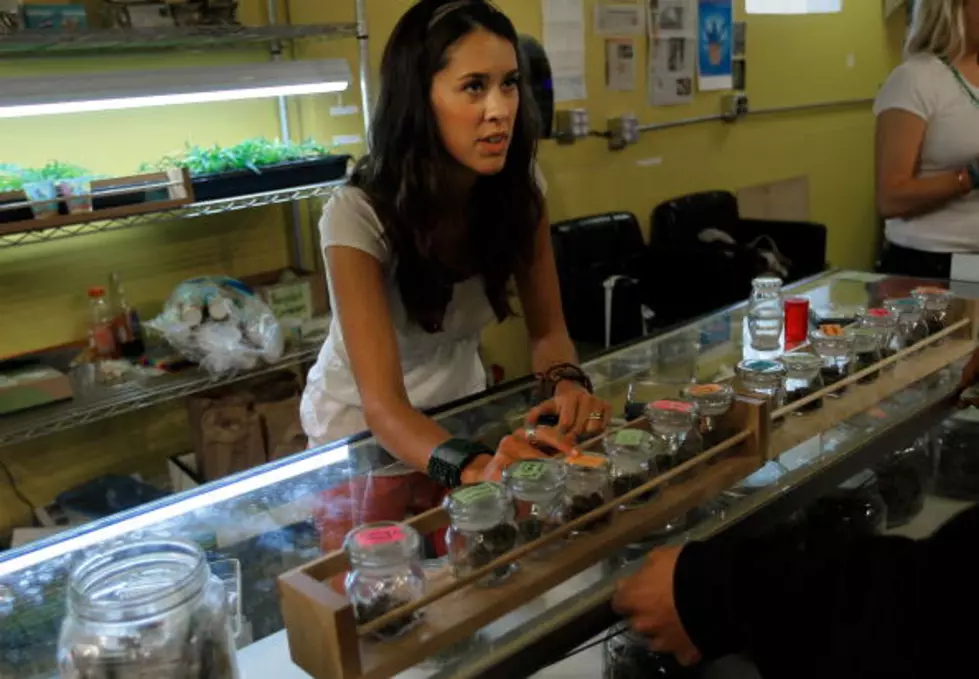
How Much Would Illinois Make from Recreational Marijuana?
In case you were unaware, a couple of days ago the Illinois House voted to move Illinois to ticket-based penalties for possession of up to 10 grams of marijuana. It's not a done deal, though. Governor Bruce Rauner still has to sign off on it.
If the governor signs Senate Bill 2228, instead of making arrests, police will start issuing tickets ranging from $100 to $200 per offense. Previously, anyone caught with 10 grams or less of marijuana could have been charged with a misdemeanor, resulting in a fine of up to $1,500 and possible jail time of up to six months. Under SB 2228, anyone charged with the civil marijuana possession penalty would also automatically have his or her record expunged six months after the bill’s effective date.
Keep in mind that SB2228 doesn't legalize recreational use of marijuana. What it does is reduce the penalties for possession of a "personal amount" of up to 10 grams. Legalized recreational use is an entirely different thing, although four states have legalized the purchase of marijuana for recreational use: Alaska, Colorado, Oregon and Washington. Should the governor agree to the provisions in SB 2228, and sign it into law, you can bet that there will soon be calls for recreational legalization.
In a state like ours, with the massive financial difficulties and challenges, the question is bound to be asked, "How much money would the state make from the legalization and taxation of recreational marijuana use?"
Natalie Davila Maurice Scholten, writing for Reboot Illinois, points out there are various theories on how much of a windfall weed could be here in Illinois, based upon what's been happening in Alaska, Colorado, Oregon, and Washington.
As for Alaska:
Alaska levies a $50 per ounce excise tax on the sale of marijuana from the cultivation facility to the retail store. Alaska does not have a state sales tax, however localities have the option of enacting local sales taxes (0-7.5%). In Alaska, state analysts estimate tax revenue from marijuana sales will range from $5.1 million to $19.2 million. Alaska is currently in the process of issuing the proper licenses to cultivators, retailers and others. As a result, marijuana will not be legally sold until September 2016.
And Colorado:
Colorado has a 15 percent excise tax on the average market price of retail marijuana. The tax is imposed on the first transfer of marijuana from the cultivation facility to the retail store. The state of Colorado posts this average market price twice a year. Recreational marijuana is subject to a 2.9 percent sales tax, plus an additional 10 percent state sales tax —for a total minimum rate of 27.9 percent. Locals may impose additional taxes. Currently Colorado is bringing in $11 million per month in combined state sales and excise marijuana tax revenue. Based on the most recent data from Colorado and adjusting for Illinois’ greater population, if Illinois adopted Colorado’s tax structure the state would receive estimated annual revenue of some $321.5 million. Note that this estimate allows for an exemption for growing cannabis at home.
And, here in Illinois, there's only been one proposal for recreational use of marijuana:
At the time of writing, only one bill is currently pending before the Illinois General Assembly that would legalize recreational marijuana, so here we evaluate the tax components of that specific bill. There have been other proposals in the past, and likely will be more in the future, but this provides the best available starting point for estimating Illinois’ potential revenue. Illinois HB 4276 proposes a tax structure where the general sales tax rate along with a 10 percent excise tax would be applied. The sales tax would be applied to the retail price while the excise tax would be on the wholesale price. Note that this proposed taxing structure would put less of a tax burden on marijuana in Illinois compared with the four states that have currently legalized marijuana. The above estimates for the Illinois marijuana market size based on other states’ recent experiences vary widely, ranging from $536.2 million to $1,152.3 million. Applying the tax structure proposed in HB 4276 (5 percent state sales tax rate along with 10 percent excise tax rate) to our estimates of Illinois market size (assuming a 100 percent retail mark-up, so the excise tax base—the wholesale price—is one-half the retail market amount) yields an annual state revenue estimate ranging between $53.6 million and $115.2 million.
There will be plenty of robust discussion on the pros and cons of legalizing weed for recreational use in the coming months.
For a look at Reboot Illinois' entire breakdown of state revenue and tax structure from marijuana sales, click here.
More From WROK 1440 AM / 96.1 FM









